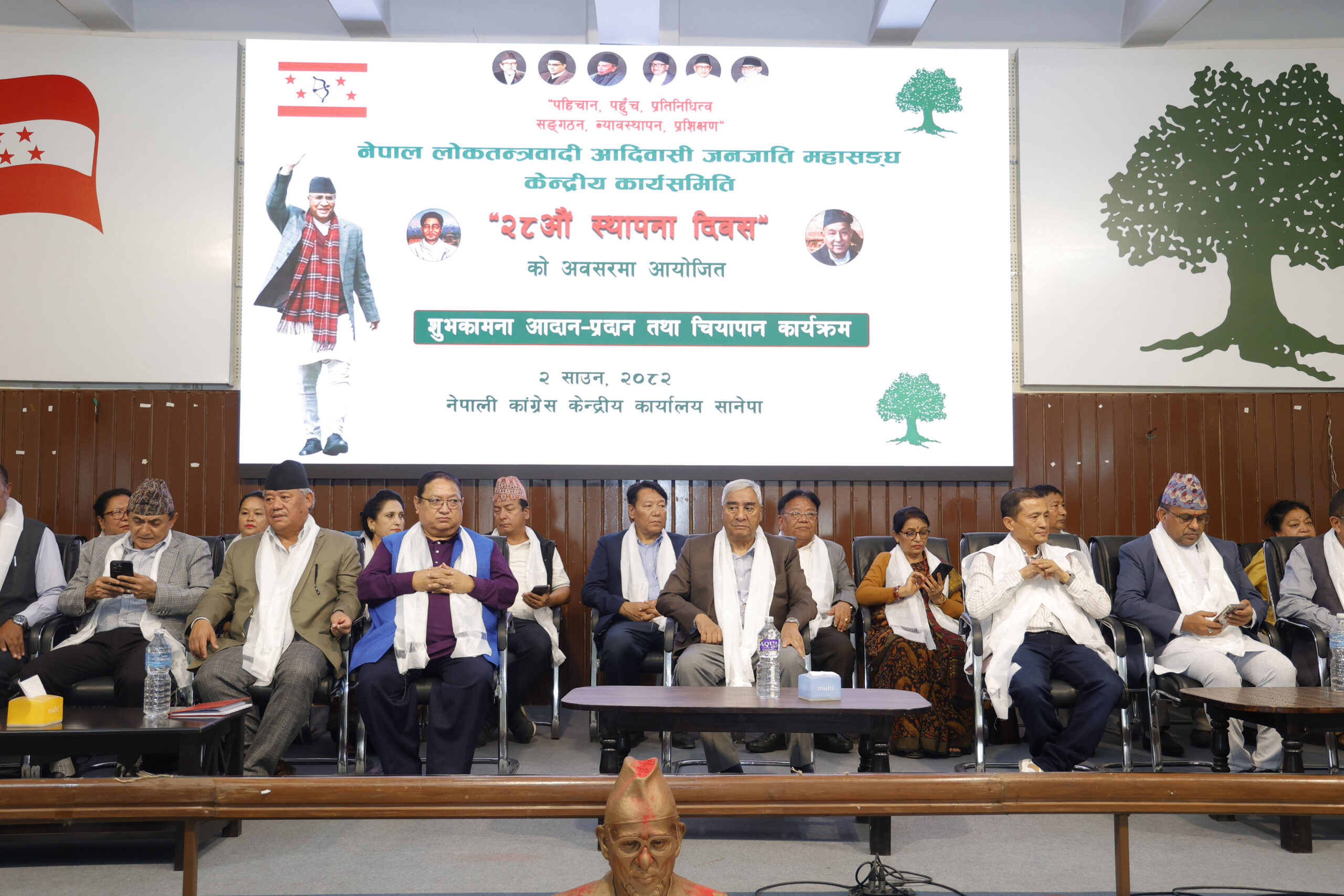

LALITPUR: Nepali Congress (NC) President and former Prime Minister Sher Bahadur Deuba has said Nepal’s lingual diversity has played a vital role in protecting and promoting national identity.
Speaking at a reception organized by the Central Executive Committee of the Nepal Democratic Federation of Indigenous Nationalities on Friday, Deuba stated, “Lingual diversity is the beauty of Nepal, and the participation of all castes and communities is essential for nation building efforts.”
Also addressing the event, Minister for Culture, Tourism and Civil Aviation, Badri Prasad Pandey, said the art and culture of each caste and community along with Nepal’s ethnic and linguistic diversity, have gained global recognition. He added that a new cultural policy would be formulated, reflecting the sentiments of ethnic communities. “Culture includes both tangible and intangible aspects,” the Minister reminded, adding that the Ministry has received a total of 105 applications for the listing of intangible heritage.
He echoed the need for collective efforts to protect both tangible and intangible cultural heritages.
NC central member Jeeph Chhiring Sherpa spoke the urgency of developing policies aimed at protecting the languages, religions, cultures, civilizations, customs, and identities of Nepal’s 124 ethnic communities. He urged the party to take the lead in this initiative.
Head of the Indigenous Nationalities Department of the NC, Dilman Pakhrin, argued that the Interim Constitution of Nepal–2007, promulgated under the leadership of the late NC veteran Girija Prasad Koirala was the first to constitutionally ensure the rights of indigenous nationalities, women, Dalits, and the working class.
President of the NC Bagmati Province Committee, Indra Bahadur Baniya, said the NC has consistently worked for the economic prosperity and welfare of the people. He acknowledged the significant role of indigenous nationalities in driving the country toward development.
NC Mahasamiti member Gyaljen Sherpa stated that the party had the capacity to accommodate all indigenous nationalities within its organizational structure. He highlighted that indigenous nationalities constitute 37% of the country’s population and stressed that ensuring their meaningful representation in all state mechanisms, along with political empowerment, should be a priority for all concerned stakeholders.